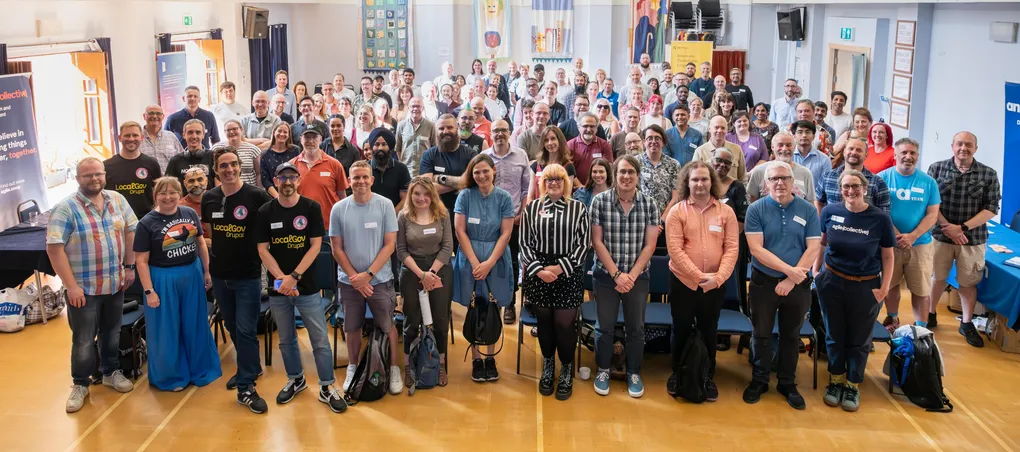
LocalGov Drupal Camp 2025: Takeaways on Accessibility and AI
Reflections from Westminster after attending LocalGov Drupal Camp, with a focus on accessibility, AI, and spending time with colleagues in person.
Last week I was in London for LocalGov Drupal Camp, my first proper event since joining Northumberland County Council. I spent the evening before in the city with colleagues, and after nine months of mostly remote working, it was just good to grab a coffee and have proper conversations with the people I usually only see on Teams.
Most of the talks I joined focused on accessibility and AI. There were no big surprises, but that actually gave me confidence. Much of what came up reflected the work I’ve already been building into the beta site at NCC, from accessibility improvements and semantic structure to design system tokens, componentised components, and reusable patterns. It felt like we’re not just on the right track, we’re slightly ahead in some areas.
A quick summary of the sessions I was in:
- Accessibility – A reminder that screen reader users rely heavily on heading structure and links, and that pattern libraries should be tested by real users, not just audited.
- Alt text – A group discussion about alt text needing to match the context of the page, not just be added at upload. A soft character limit could help steer authors toward using captions instead.
- AI chatbots for local government – A bot that scrapes a sitemap and offers human-readable responses could help reduce contact centre load and highlight content gaps.
- AI customer journeys – How councils might use LLMs to guide users to relevant pages, trained on FAQs and structured content.
The main thing that stuck with me was from the accessibility session, something I’d raised with the team last year. Accessibility should involve real people who use adapted tech every day, not just devs running screen readers and hoping we’ve got it right.
While we do already have a people’s panel, I still think we need an accessibility-specific panel. One made up of users who rely on assistive technology or who access digital services in ways that are not always considered ‘standard’. Otherwise, we’re still just guessing.
It reminded me of something I’ve said a lot in my career:
we shouldn’t assume how people access what we build.